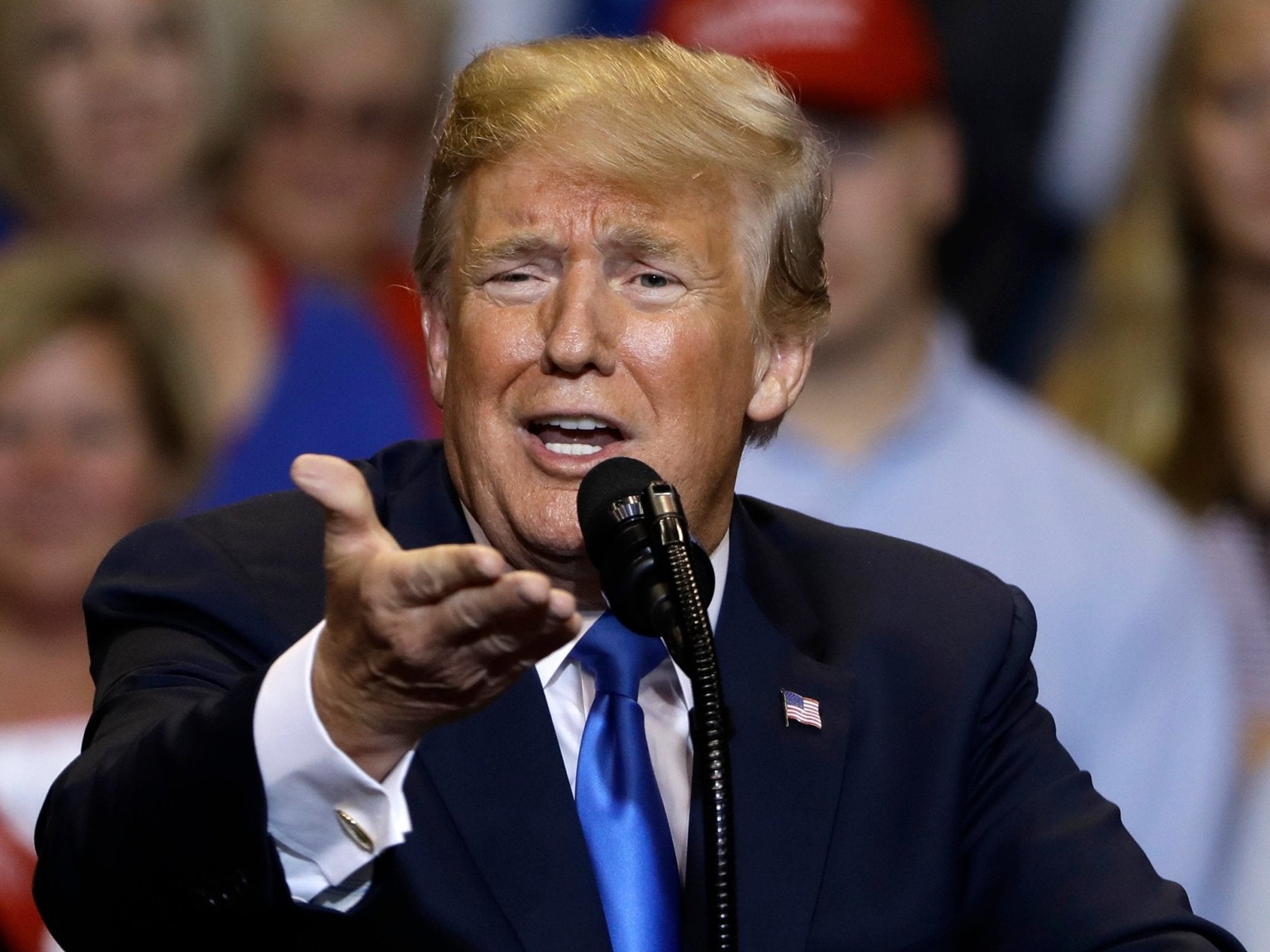43% of Republicans say Trump should be able to shut down news outlets, new poll finds
The president isn't the only one who thinks the 'press is the enemy of the American people'

Your support helps us to tell the story
From reproductive rights to climate change to Big Tech, The Independent is on the ground when the story is developing. Whether it's investigating the financials of Elon Musk's pro-Trump PAC or producing our latest documentary, 'The A Word', which shines a light on the American women fighting for reproductive rights, we know how important it is to parse out the facts from the messaging.
At such a critical moment in US history, we need reporters on the ground. Your donation allows us to keep sending journalists to speak to both sides of the story.
The Independent is trusted by Americans across the entire political spectrum. And unlike many other quality news outlets, we choose not to lock Americans out of our reporting and analysis with paywalls. We believe quality journalism should be available to everyone, paid for by those who can afford it.
Your support makes all the difference.More than 4 in 10 Republicans want to give Donald Trump the power to shut down the media according to a new poll – believing the president’s statement that journalists are "enemies of the people".
A new Ipsos poll has found that nearly half (48 per cent) of self-identified Republicans agree "the news media is the enemy of the American people". Meanwhile, some believe Mr Trump should be allowed to take action against certain publications, with 43 per cent of Republicans saying "the president should have the authority to close news outlets engaged in bad behaviour".
The poll revealed other deep divides across party lines when it came to media: 80 per cent of Republicans said "most news outlets have a liberal bias" compared to 23 per cent of Democrats, while 79 per cent of Republicans and just 11 per cent of Democrats agreed "the mainstream media treats President Trump unfairly".
It also supported the public’s declining faith in media to accurately report the news — a well-documented trend that began long before Mr Trump, but appears to have been exacerbated during his rise to power.
The public’s trust in media sunk to a historic low during the 2016 presidential election, but faith in the industry had been eroding for decades. Just 32 per cent of the nation had a "fair amount" of trust in the media when Mr Trump came into power, according to Gallup polling.
Americans trusted the media most since Gallup began tracking the issue in 1976, with 72 percent of the public's confidence. That trust had been chipped away at since the days of Vietnam and the Watergate scandal, when investigative journalism steered the direction of the country’s social and political movements.
Mr Trump repeatedly undermines the press due to its coverage of the federal government’s investigation into Russian meddling in the 2016 election, as well as its reporting on scandals impacting his White House administration.
"Just stick with us, don’t believe the crap you see from these people, the fake news," Mr Trump said during a convention for military veterans in July. "It’s all working out. And just remember, what you’re seeing and what you’re reading is not what’s happening."
While the president’s attacks on the press may appear to be having a negative impact on public faith in media, Americans still acknowledge the importance behind a fair and free press.
85 per cent of respondents said "freedom of the press is essential for American Democracy," while 68 per cent said "reporters should be protected from pressure from government or big business interests."
Still, the new poll revealed that Republicans aren't the only ones with severe criticisms for the current media landscape. 26 per cent of independent voters also said “the news media is the enemy of the American people,” along with 12 per cent of Democrats.
One data set did appear to disrupt party lines: the majority of Americans (72 per cent) said "it should be easier to sue reporters who knowingly publish false information."
Ipsos surveyed over 1,000 American adults from 3 August through 6 August, with a random sampling drawn from Ipsos's online panel.
Join our commenting forum
Join thought-provoking conversations, follow other Independent readers and see their replies
Comments